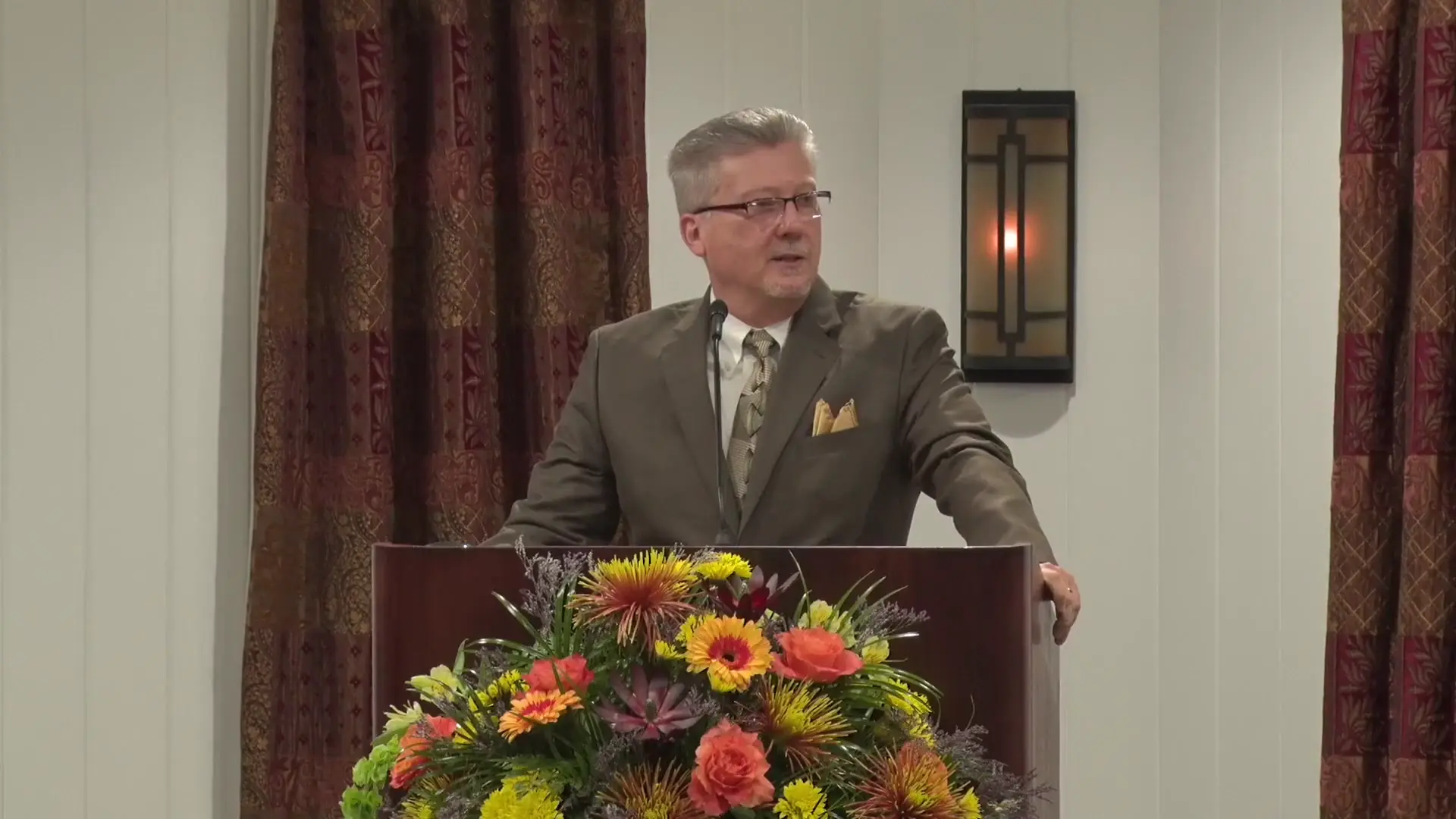Filter by Categories
The Offerings of Leviticus (Part Seven): The Sin and Trespass Offerings
'Personal' from John W. RitenbaughSin separates us from God, and it must be overcome to gain access to Him. The ceremonial system in Leviticus illustrates this through the sin offering, highlighting the seriousness of sins based on who commits them. For a high priest or the entire congregation, the sin offering involves taking the blood inside the Tabernacle and smearing it on the horns of the incense altar, which represents communication with God through prayer. This act is necessary because their sins shut off communication with God, affecting the entire nation, and the blood ceremonially cleanses the altar to heal the breach. In contrast, for a ruler or common person, the priest takes some of the blood of the sin offering, puts it on the horns of the altar of burnt offering, and pours the rest at its base. Their sins affect only themselves and those immediately involved, so the ceremony does not involve the incense altar, allowing them to continue their services to God in other areas. The distinction in these offerings underscores the varying impact of sin, with the blood serving as the means to reunite God and man.
Offerings (Part Six)
Sermon/Bible Study by John W. RitenbaughThe sin offering was for sin in general deals with our evil nature, while the trespass offering deals with the fruits of that nature.
Jesus Christ, the Bearer of Sin
Sermonette by David C. GrabbeThe Messianic prophecy in Isaiah 53, plus the testimony of Peter and the author of Hebrews, show that Jesus fulfilled the azazel goat's role by bearing sin.
The Offerings of Leviticus (Part Nine): Conclusion (Part Two)
'Personal' from John W. RitenbaughThere must be something to prove we are one with Christ and in union with the Father and the Son. That something is the manner in which we conduct our life.
Offerings (Part Two)
Sermon/Bible Study by John W. RitenbaughThe sacrifices teach us about the mind, heart, and character of Jesus. The burnt offering symbolizes complete devotion to God in every aspect of life.
Offerings (Part Seven)
Sermon/Bible Study by John W. RitenbaughIf we want to follow Christ, we must sacrifice, take up our cross, and follow His example of service to God and others.

Passover: An Extraordinary Peace Offering
Sermon by David C. GrabbeThe Passover sacrifice is basically unconnected with atonement, but represents the peace and security which attends fellowship with God because of His acceptance.
The Offerings of Leviticus (Part Three): The Meal Offering
'Personal' from John W. RitenbaughThe meal offering represents the fulfillment of the second great commandment, "You shall love your neighbor as yourself." Here is how to understand this offering.
Offerings (Part One)
Sermon/Bible Study by John W. RitenbaughThe burnt offering shows Christ giving Himself completely to God as God's portion. It represents a life fully devoted to God, which is what truly satisfies Him.
Sin Defined and Overcome
Sermon/Bible Study by John W. RitenbaughSin creates estrangement from God, causing us to fail in everything we attempt. Sin always produces separation; it never heals, but causes death.
The Two Goats of Leviticus 16
Sermonette by David C. GrabbeThe first goat is a blood sacrifice to cleanse the altar. The second goat—the 'azazel' or 'complete removal'—is led away and freed (not bound by a chain).
Why Two Goats on Atonement? (Part Two)
CGG Weekly by David C. GrabbeIn the Day of Atonement ritual, the first goat's blood cleansed the altar of sin while the azazel goat took them away. Christ fulfilled both roles.
Who Fulfills the Azazel Goat— Satan or Christ? (Part Five)
'Ready Answer' by David C. GrabbeWhile the church of God has long taught that the azazel goat of Leviticus 16 represents Satan, this traditional view has no biblical support.
Hebrews 10:9 - Sacrificial System or Old Covenant?
Sermonette by Charles Whitaker (1944-2021)Hebrews 10:9 does not say that God's law or the Old Covenant has been done away, but that the system of animal sacrifices has been set aside for now.
Why Two Goats on Atonement? (Part One)
CGG Weekly by David C. GrabbeIn Israel, sins were symbolically placed on the altar throughout the year. On Yom Kippur, one goat's blood cleansed the altar; the second took away the sins.
What Is Propitiation? (Part One)
Bible Study by Martin G. CollinsPropitiation is the way God and man can be reconciled and experience a profitable relationship.

Who Fulfills the Azazel Goat—Satan or Christ? (Part One)
'Ready Answer' by David C. GrabbeSome say the scapegoat (azazel) prefigures the Devil, others say it has been fulfilled by Jesus. Tradition teaches one thing; Scripture reveals another.
Atonement Goats and Passover Lambs
Sermonette by David C. GrabbeThe Day of Atonement is not about Satan, but about the complete cleansing from sins through Christ. The Passover is not a sin offering, but a peace offering.
Eucatastrophe
Sermonette by Richard T. RitenbaughEucatastrophe is an unraveling that ends up good. The Bible contains a number of eucatastrophes, including the death of Christ, a tragedy that turns into good.

Jesus in the Feasts (Part Four): Atonement
Sermon by Richard T. RitenbaughIsaiah 53 and passages from the New Testament substantiate Christ's dual role in shedding His blood and bearing away sins, thereby reconciling humanity to God.

Azazel: Beginnings
Sermon by David C. GrabbeWhile there is a handful of common starting places for understanding the azazel, none of them has multiple witnesses of Scripture. We must begin elsewhere.
Pentecost's Two Leavened Loaves (Part Five)
CGG Weekly by David C. GrabbeRight now in the church of God, doctrinal differences divide us, including when to start the count to Pentecost when Passover falls on a weekly Sabbath.
Pentecost's Two Leavened Loaves (Part Three)
CGG Weekly by David C. GrabbeWe may do the right thing toward a neighbor but not do it with the exact, perfect attitude that God does it in. Thus, our 'good' work contains corruption.

Azazel: Endings
Sermon by David C. GrabbeOne goat had to die for cleansing; the other goat had to remain alive for bearing the sins away. Jesus fulfilled both roles. Satan's binding atones for nothing.
Fearing God at the Feast (Part Three)
CGG Weekly by David C. GrabbeThe Feast is not a celebration just for the sake of having a good time. Our festivities should focus on God's faithfulness, rejoicing in all He did during the year.
The Doctrine of Israel (Part Fourteen): Israel Redeemed
Sermon by Richard T. RitenbaughGod employs a winnowing process in selecting those who will enter the Millennium. The process includes punishment for Israel's failure to serve as priests.
Seeking God's Will (Part Four): Sacrifice
Sermon by Richard T. RitenbaughOn the Day of Atonement, we are to afflict our souls by fasting. We do no work, signifying that we did absolutely no work to attain our salvation.

The Bond of Perfection: Sacrifice
Sermon by Bill OnisickSacrifice is the central theme of God's plan, not only the foundation of salvation, but also a means by which we are transformed into God's image.

The One Thing
Feast of Tabernacles Sermon by Bill OnisickSacrifice is the foundational principle for salvation and spiritual growth, as exemplified by Christ's preordained sacrifice before the world's creation.
Led Outside the Gate
CGG Weekly by David C. GrabbeJesus permitted Himself to be sent by the leaders and led by their agents in true meekness, submitting to the Father's will, even cleansing those who led Him.
Two Loaves, Baked with Leaven
Sermonette by David C. GrabbeThe leavening indicates that the wave loaves speak to this life rather than the resurrection. It is accepted by God only because of the other sacrifices.
A Day Without Work
Sermon by Richard T. RitenbaughRefraining from work on the Day of Atonement symbolizes our inability to atone for our sins. We, humble and poor in spirit, depend upon God for everything.
The Talking Blood (1994)
Sermon by John W. RitenbaughThe blood of Christ, a propitiation or appeasing force, the only means to satisfy God's pure sense of justice, is a testimony of God's intense love for us.
The Law of the Firstborn
Article by StaffIt is an unusual fact that the subjects of God's spring holy days and firstborns appear in the same contexts. Here is what this means to us.